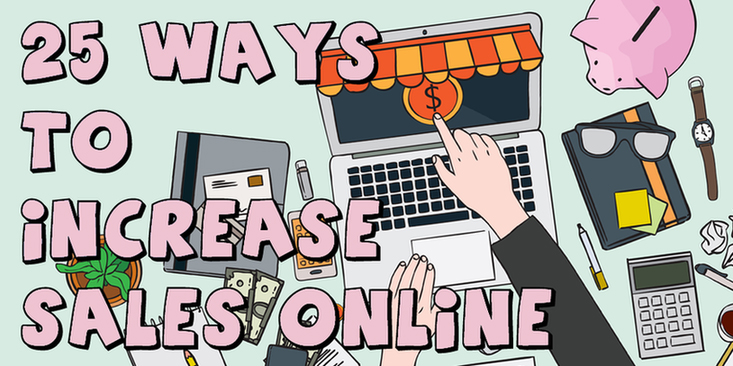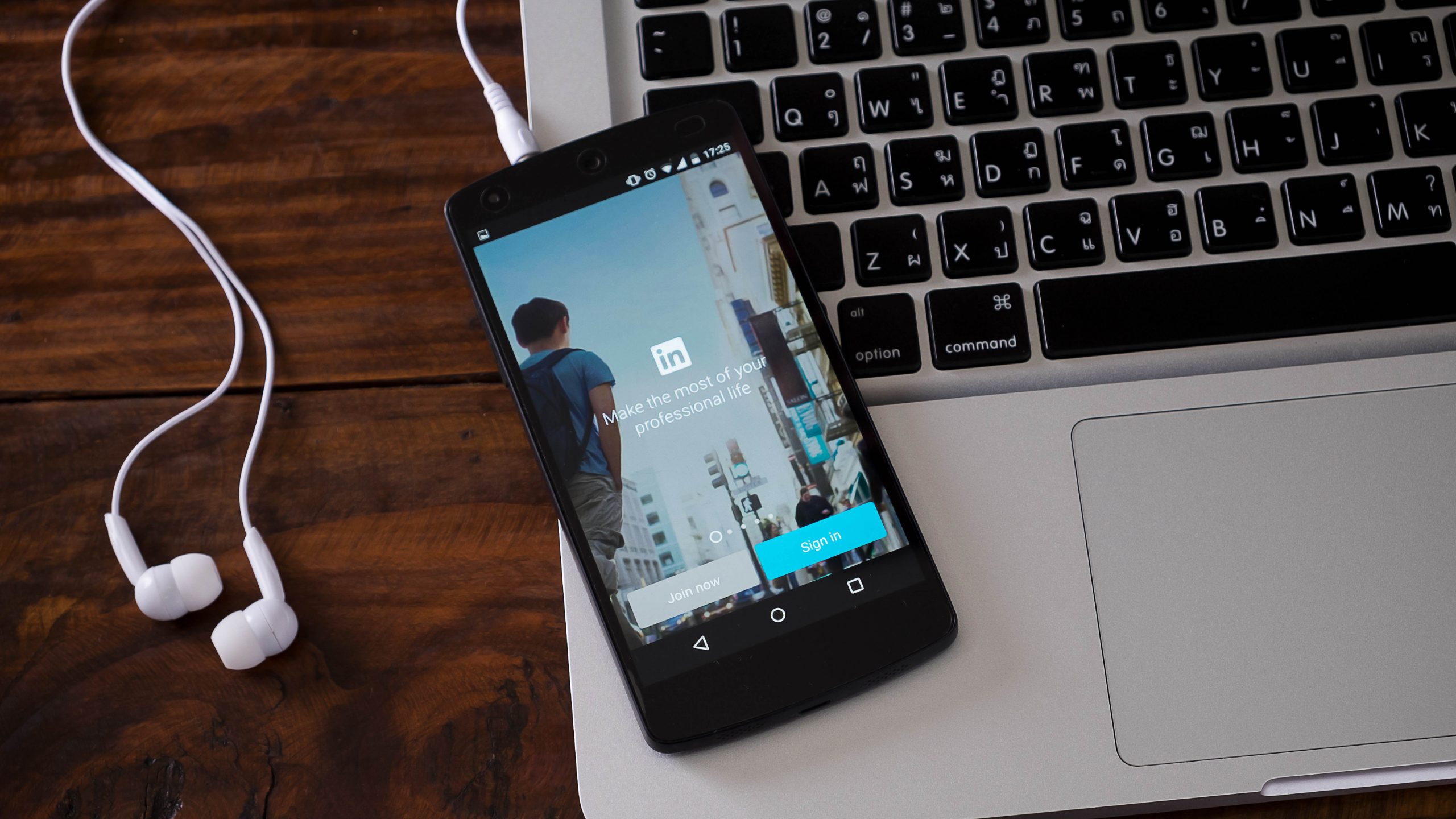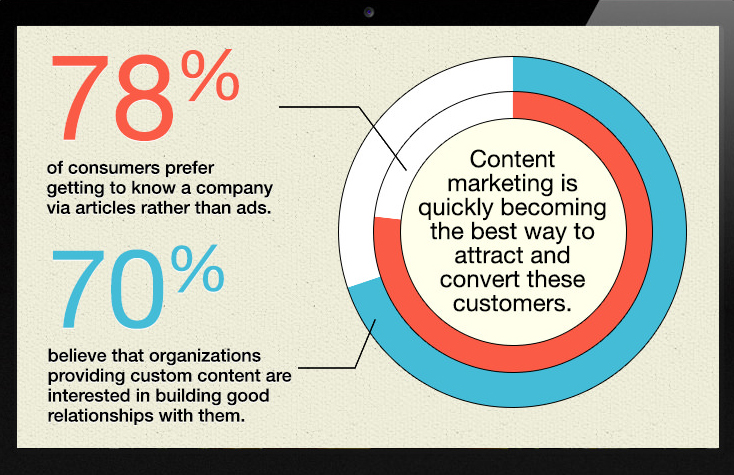Increasing online sales is the primary goal of countless businesses, large and small alike. Whether you run a mom-and-pop retail business or work for a vast ecommerce giant like Amazon, increasing sales through online channels is a little like bowling a strike – it looks a lot easier than it actually is.

Fortunately, there are dozens of ways you can make more sales online, many of which you can implement right away. Some of these tips focus on specific strategies you can implement, whereas others are more generalized. In this post, we’ll be looking at 25 such strategies, so whether you sell physical goods or run a service-based business, here are 25 actionable techniques you can use to increase online sales performance.
Ready to drive more online sales than ever before? Download our free guide to Google Shopping and start winning new customers today!
1. Be Honest in Your Sales Copy
This might seem painfully obvious, but it’s amazing to me how many sites write checks their products can’t cash. Not only is honesty in your copy crucial to your business’ reputation, it also fosters and encourages trust in your brand. Don’t make claims you can’t substantiate, and don’t use hyperbole lightly – today’s consumers are hypersensitive to marketing BS, so be honest, straightforward, and approachable in all your sales copy, from your homepage to your email campaigns.

This PETA ad was pulled from billboards in the U.K. by the Advertising Standards Authority in 2013 for making unsubstantiated claims.
This principle also applies to how you position yourself as a business. Ever come across a site that’s obviously run by one or two people, but features copy that would be better suited to a multinational enterprise company? This approach not only makes you look foolish, it also damages your brand’s credibility. If you’re a small company, take pride in that and be upfront about it – many consumers are turning to smaller businesses precisely because of the more individualized, personal service they can offer. Don’t try to be something you’re not.
2. Get More Ad Clicks with Ad Extensions
If you’re selling stuff online, ad extensions are a no-brainer – this feature (available in both AdWords and Bing) allows you to make your ad bigger with more places to click. And it doesn’t cost any extra! AND it increases your ad’s click-through rate! Amazing, right?

In the above example, the links to “Men’s Sunglasses” and “Women’s Sunglasses” give people who are looking to buy a new pair of Ray-Ban’s two additional places to click. This saves the potential customer a step and makes it easier and faster to find exactly what they want (so they go to your site instead of a competitor’s).
3. Show Off Customer Testimonials and Trust Signals
In today’s social media environment, customer feedback has never been more important. Fortunately, this means that your satisfied customers can provide you with one of the most valuable weapons in your arsenal – testimonials.

Legions of satisfied customers are considerably more influential than even the best-written sales copy, so make sure you include gushing testimonials and reviews from your hardcore brand evangelists gushing about how wonderful you are. These might appear on your product pages, landing pages, pricing page, even your home page. For more info, check out my post on the power of customer testimonials.
Similarly, the inclusion of trust signals can be an excellent way to increase online sales, as it creates a more favorable perception of your brand in the mind of the prospect and can potentially overcome hesitations preemptively. If your business has any professional accreditations (even something as routine as a Better Business Bureau certification or membership to your local chamber of commerce), put these trust signals front and center on your site. If you have an impressive list of satisfied clients, make sure your prospects know about it.
4. Create a Sense of Urgency
It’s important to be honest and transparent about who you are and what you do, but there’s no rule against creating a sense of urgency to persuade prospects to buy from you right now.

Many consumers respond positively to incentives that create a sense of urgency, from time-sensitive special offers to limited-edition products. Although the ways you can accomplish this are as diverse as the products you can buy online, some strategies may be more effective than others. For example, if you don’t (or can’t) make a limited-edition product to entice prospects, maybe you can offer a financial incentive to customers who commit to a purchase right away, such as free shipping or a discount.
In AdWords, you can use ad customizers to display a countdown on a seasonal offer or limited-time sale:

However you choose to do it, creating a sense of urgency is a great way to increase online sales.
5. Offer a Bulletproof Money-Back Guarantee
Oftentimes, one of the most powerful factors in a consumer’s decision not to buy something is risk aversion – the desire to avoid a potential loss. Most times, this perceived risk is a financial one. Why should someone buy your products? What if they don’t work, or the customer doesn’t like them? Even small purchases can carry the risk of “buyer’s remorse,” so overcome this objection from the outset by offering a bulletproof money-back guarantee.

The more risk you remove from the prospect’s decision, the more likely they are to buy from you, so take away anything that could dissuade prospects from buying from you.
6. Offer Fewer Choices
To many businesses, this concept is simply unthinkable. Surely offering more products is a great way to increase sales! Well, not necessarily. In fact, in many instances, a greater variety of choice can lead to indecision on the part of the prospect, which in turn results in lost sales.
If you have a wide range of products, consider structuring your site or product pages in a way that offers visitors as few choices as possible. This reduces the possibility that the visitor will be overwhelmed by dozens of different products. This can be accomplished by arranging your products into increasingly narrow categories (an added bonus of which is offering visitors greater ease to find exactly what they’re looking for), or you could place greater emphasis on fewer individual products. Either way, remember that the more choices you provide, the more likely a customer is to bounce and go elsewhere.
7. Target Lookalike Audiences on Facebook
One of the best ways to increase online sales is to use the data you have about your existing customers to find people just like them. Facebook allows you to do this through the targeting of lookalike audiences.

Lookalike audiences in Facebook are essentially users on Facebook who share characteristics and behaviors to customers in your database. You upload your data to Facebook, which then cross-references its own data (and information from third-party data brokers) to create matches based on the criteria you specify. You can also use tracking pixels and data from app installations to help you create lookalike audiences. This is an excellent way to make the data on your existing customers work for you, as it effectively allows you to greatly expand your reach with minimal effort and use highly targeted ads to entice Facebook users who are very similar to your existing customers. Check out this blog post about Facebook ad targeting to learn more about lookalike audiences.
8. Reduce Friction in the Checkout Process
According to Business Insider, approximately $4 TRILLION worth of online merchandise was abandoned in incomplete shopping carts last year alone, of which 63% was potentially recoverable. This is a truly jaw-dropping statistic, and one that reveals how crucial it is to nail your checkout process.

Similar to the point above about user experience, reducing friction in your checkout process can have an incredible impact on your conversion rates. Just as you should make it as easy as possible for visitors to use and navigate your site, you should make it even easier for them to actually buy what you’re selling.
Eliminate any unnecessary steps in your checkout process that could dissuade a prospect from converting. Skip unnecessary fields in forms. Don’t time them out and make them start over from the beginning. Here are some more tips on battling shopping cart abandonment.
9. Provide as Many Payment Options as Possible
Okay, so your business takes credit cards. What about Google Wallet payments? Or ApplePay? What about Stripe? WePay?

Consumers have more choice than ever before in terms of how they actually pay for goods and services, and not everyone prefers to use American Express. By offering more payment options, including newer services that are becoming increasingly popular on mobile, you’re making it easier for prospects to give you their money. Sure, it can be a hassle to optimize your site (and checkout process, as we discussed above) to include all these options, but doing so is a great way to increase online sales, particularly if your site has strong mobile traffic.
10. Invest in Quality Product Images
There’s compelling evidence that well-presented food actually tastes better than sloppily plated dishes. Given how important appearance is in relation to how we perceive things (including other people), it stands to reason that investing in quality product photography will have a similar effect on visitors to your site.

Regardless of what you sell, include high-quality images of your products – no tiny thumbnails or poorly lit shots taken in your stock room. Also be sure to include a wide range of images. It might seem overkill to include shots of your products from every conceivable angle, but try it out. People love to kick a product’s proverbial tires before buying, especially online.
11. Get Rid of Your Landing Pages
We’ve mentioned this strategy before, and it usually raises more than a few eyebrows to say the least. However, we’re not advocating for eliminating landing pages unncessesarily, but rather optimizing your online ads to align with how many consumers actually browse the Web and shop online.

Call-Only campaigns in Facebook and AdWords are an excellent example of a situation in which removing the traditional landing page entirely makes a lot of sense. Most people don’t want to spend several minutes browsing pages on their mobile device – they simply want to get in touch with your business.

By utilizing Call-Only ads, you’re making it easier for prospects to reach out to your business, eliminating one of the leakiest stages of the classic online sales funnel completely, and potentially increasing the volume of calls to your business – one of the most valuable lead sources to many businesses. People who call you are practically begging you to sell them something.
12. Give Gmail Ads a Try
After years in and out of beta, Gmail Ads are FINALLY available to everyone. This is an exciting way to reach prospects and increase sales.

If you’re already reaching customers when they search and when they browse on social, why not go the extra mile and hit them while they’re in their inboxes, too? One of the most effective ways to use Gmail Ads is by targeting competitor keywords. People who are in the market for your competitors’ products are getting emails from your competitors that mention their brand terms right now. By targeting those same terms you can show up in their inboxes and hopefully change their minds.
13. Keep Messaging Consistent Across Campaigns and Your Site
Ever clicked a PPC ad that grabbed your attention, only to be taken to an irrelevant landing page (bad) or the site’s homepage (worse)? Did you end up buying whatever you were looking for from that site? Probably not.

A display ad for Air Canada, and its accompanying
landing page

If a user clicks an ad for a specific product or service, the page they’re taken to should be about that specific product or service – not a related category, not a special offer for another product, but that specific product. Make sure your messaging is relevant across your PPC and paid social campaigns and the pages associated with them, so that ad clicks actually turn into sales.
14. Answer Every Question and Address Every Objection in Your Copy
One of the most dangerous pitfalls you can fall into when trying to sell online is making assumptions about your prospective customers’ knowledge of your product, service, or even market. Many companies mistakenly believe their customers know more about what they’re selling than they actually do, which results in unanswered questions or objections that are failed to be addressed – both of which can harm sales.
Consider every question you can possibly think of about your product, and answer it in your copy on your product pages. Similarly, think about every potential objection a prospect might have about your offering, and preemptively overcome it in your copy. This might seem impractical, but remember, you’re not bombarding prospects with unnecessary information – you’re giving them exactly what they need to make an informed decision. This approach is also an excellent exercise in writing tight, clear, concise copy. If you’re worried there’s too much copy, you can always trim it down. Just keep the focus on the customer and how it benefits them, not why your company is so awesome.
15. Give Away As Much As You Possible Can for Free
People love free stuff, and the more you give away for free, the more favorably prospective customers are likely to perceive you and your brand, which can result in more online sales.

Awesome!
Look at your current offerings. Can you give anything away for free? If you’re in the software business as we are, it’s easy to offer free, no-obligation trials of your software. Even if you’re not, you can just as easily give away samplers, trial memberships, two-for-one offers, and other reward-based incentives. Giving stuff away for free isn’t just a great way to improve people’s perception of your business, it’s also a great way to introduce them to your must-have products and tempt them to buy more.
16. Create and Target Detailed Buyer Personas
I’m going to go ahead and assume that you’re already creating buyer personas (because if you aren’t, you’re in real trouble), but I am going to challenge you to create even more detailed buyer personas than you have in the past.

If you’ve ever looked at the targeting options available to Facebook advertisers, you may have seen the amazing granularity with which you can target users on Facebook – advertisers can target users based on the square footage of their home, the university from which they earned their degree, and even where they plan on going for their next vacation (as Margot revealed in her fascinating post about amazingly granular Facebook audiences).
Obviously, this degree of specificity may be a little overkill for your buyer personas, but the better you “know” your ideal customers, the more likely they are to respond to carefully crafted messaging tailored specifically to their lives. Push yourself to create more detailed buyer personas than you ever have before. To learn more about this process, check out my detailed guide to creating buyer personas.
17. Implement Tiered Pricing
When you go to a restaurant, the chances are pretty good that you’ll invariably choose one of the mid-priced dishes. This is because many restaurants manipulate psychology to push people toward the mid-range meals. We’ll often avoid the cheapest dishes – and the most expensive – making the middle-tier options the most appealing. This is a technique known as “decoy pricing.” The same principle can be leveraged to increase sales online with tiered pricing structures.

By including a third “decoy” option in your pricing structure, you can push people toward the middle option – the one you really want them to buy. Sure, some people will go for the most expensive option anyway (which is a bonus, revenue-wise), but most will subconsciously avoid the decoy and choose the middle-tier option, which is precisely what you want them to do. Many companies leverage this psychological principle (also known as the “asymmetric dominance effect”) to make us buy what they want. To learn more about decoy pricing, check out this post by Neil Patel at MarketingLand.
18. Add an Opt-In Pop-Up Offer to Push Them Over the Edge
If you’re looking to increase sales in retail, don’t ignore the potential of opt-in offers – prompts that encourage people to sign up for your newsletter, mailing list, or loyalty programs. Using opt-in offers can not only significantly increase the number of contacts in your database (a major asset for future email marketing campaigns), but also increase online sales in the short term.

Prospective customers who are on the fence about buying from you may well be swayed by a well-placed opt-in offer for, say, free shipping, or 10% of their first order. Even if they decide against the purchase at that time, but do sign up for your opt-in offer, you’ve still added them to your database and they may choose to return later to complete the sale.
When launching an opt-in offer, be sure to test every element for maximum optimization. Test the phrasing of the copy, the position at which it appears on your site, and the flow that visitors are directed through the process. A/B test different offers and see which ones yield a greater volume of sign-ups. Consider having the pop-up be triggered by a site exit so visitors see it just before they’re about the leave the page. The more people that sign up for your newsletter or loyalty program, the more potential sales you can make in the future.
19. Grow Online Sales with Mobile Optimization
The number of online businesses with poorly designed, badly optimized “mobile” sites is amazing.

Mobile search has already eclipsed desktop search in volume. If you don’t want to leave sales on the table, it’s vital that your site is optimized for mobile – and not purely from a technical perspective.
Make it as easy as possible for mobile visitors to buy whatever you’re selling. This may involve an extensive overhaul of your checkout process (see tip #18), or the design and launch of an entirely separate mobile site. Amazon’s mobile site is an excellent example of how mobile ecommerce can (and arguably should) be done, but you don’t need Amazon’s resources to create a compelling, user-friendly experience for visitors on mobile.

Navigation and user experience are among the most crucial elements of a well-designed, highly optimized mobile experience. The harder it is for visitors to find – and buy – what they want, the more likely they are to abandon your site altogether and take their business elsewhere. Pages should load near-instantaneously, and navigation should be logical. Don’t ask for too much information, only the bare minimum you need to either make the sale or market to prospects later. Allow visitors to come back to their carts later, even on another device. Don’t expect mobile visitors to convert in a single session, because they probably (almost definitely) won’t – but they might convert later, if you make it easy for them to do so. Think of your mobile visitors and do everything you possibly can to make it effortless for them to buy from you while they’re on the go.
20. Impress New Customers with an Amazing Follow-Up Email
Sadly, the customer experience typically ends for many businesses when they’ve finally got their hands on a customer’s money. This is a terrible mistake for customer retention. To increase sales volume online, make sure you have a thoughtful, considerate, genuinely useful follow-up procedure in place for new customers.

As a hardcore computer geek, I’m always ordering stuff from Newegg.com – replacement parts, new components, and other deliciously geeky stuff. The reason I’ve been a loyal Newegg customer for many years isn’t just the price of the goods (which is highly competitive), but rather the focus on customer service and the follow-up process Newegg has in place.
Whenever I place an order, I receive detailed summaries of my purchase (including vital tracking information so I can hit “Refresh” on the order page to see where my stuff is), as well as customer service information, links to relevant products I might be interested in, and all sorts of other resources. I’m prompted to leave reviews and feedback about my experience, encouraged to contact a real person if I have questions about my order, and can even discuss or answer questions about my purchase for other users who are considering buying whatever I just splurged on. Generally speaking, it’s just a great shopping experience – which is why I’ve been buying my hardware from Newegg for years.
Don’t forget about your customers as soon as they’ve given you their credit card details. The more attention you pay to them after they’ve bought something, the more likely they are to become fiercely loyal brand evangelists who will not only turn into satisfied repeat customers, but will also go and tell and their friends (and blog readers) about how great you are. When a customer buys something, offer them something for free (see tip #11). Talk to them on social media (more on this shortly). Send them a thoughtful, useful follow-up email with incentives to buy from you again. However you do it, make your customers feel like the precious little snowflakes they are – think relationships, not transactions.
21. Nail Your Value Proposition – And Make It Immediately Obvious
Far too many companies lose sales and waste time by focusing on themselves. Remember how we discussed that people don’t want to buy things, only solve their problems? Well, another painful truth is that unless your customers are the brand evangelists we’ve been talking about, the vast majority of them don’t care about you or your company – only how your products or services will make their lives better. This is why your value proposition should take center stage in all your marketing communications and site content.

Essentially, your value proposition is the primary reason customers should buy from you, not your competitors, and the promise of the value prospects will receive by investing in whatever you’re selling. Value propositions can be broken down into three main areas:
- Relevance: How your product/service will solve customers’ problems
- Quantifiable value: The specific benefits your product/service offers
- Differentiator: Why customers should buy from you and not a competing company
When you break down a value proposition into these three components, it becomes easy to see why these elements should inform virtually everything about your marketing messaging and site content, from the copy on your homepage to the content of your email marketing campaigns. Why wouldn’t you focus exclusively on these aspects of your products?
Take a look at your landing page copy, sales collateral, and other marketing materials. Is the value proposition immediately obvious? If not, it’s time to go back to the drawing board. Everything your prospects see should tie back to your value proposition in one way or another. The greater the perceived value you can create surrounding your products or services, the more sales you’ll make.
22. Use the Voice of the Customer for More Resonant Ad Campaigns
Hopefully you’re already using PPC and paid social to expand your reach and find new audiences. However, the language you use in your campaigns can have a tremendous impact on your conversion rates (and, therefore, your sales), so my fourth tip is to use “the voice of the customer” in your campaigns – but what does this mean?
The voice of the customer is a market research technique that aligns copy with the needs, wants, pain points, expectations, and aversions of the consumer being targeted by that particular messaging. This process often includes language and phrasing used by customers themselves during market research and focus group testing.

The example above, from accounting software company FreshBooks, uses the voice of the customer to great effect. During its market research, FreshBooks discovered that its target market (small-business owners) found bookkeeping to be painful and challenging, and so it incorporated language used by its target market in its messaging.
This technique can be extraordinarily powerful, as you’re using the exact phrasing used by your ideal customers to reach your ideal customers. To learn more about how to incorporate this into your own campaigns, check out this post on the voice of the customer.
23. Pinpoint Your Best Attribution and Conversion Paths
Sometimes, it feels as though you’re doing everything right, only to see your conversion rates hovering somewhere between “miserable” and “pathetic.” Oftentimes, this isn’t anything to do with the messaging or positioning of your ads (though it pays to look at this closely), but rather a misunderstanding of when and where conversions are happening.

One of the first things you should do if your conversion rates look low is to examine your attribution models and conversion pathways in Analytics. You may be surprised to find that parts of your marketing strategy that seem like conversion duds actually have a big influence on your online sales. For example, maybe organic search isn’t a great channel for converting into sales, but people who find you first through organic search, and then see a Facebook ad are highly like to become a paying customer. If that’s the case, you should double-down on content marketing and pour some money into Facebook remarketing too (see Tip #1, below).
24. Actually Talk to Your Prospects on Social Media
Active engagement with prospects via social media is overlooked as a potential sales tool by far too many businesses because it is perceived as having a negligible impact on actual sales – when in fact this is one of the best ways you can increase brand awareness, customer satisfaction, and sales.

Think of a time when you tweeted at a company, or commented on a brand’s Facebook page – and the company actually responded to you personally. What effect did this have on your perception of that brand? I’ll wager it became significantly more favorable. Providing fast, honest answers to questions that potential customers have about your offerings is an excellent way to increase sales, as the more attention you are perceived as paying to potential customers, the more likely people are to want to buy from you. This also results in unsolicited social feedback among users themselves – the kind of brand exposure and “advertising” you just can’t buy (well, not in a way that sounds legitimate, anyway).
25. Use Remarketing to Close Way More Deals
No matter whether you’re running a PPC campaign or a Facebook advertising campaign, any digital marketing initiative takes time, money, and effort to accomplish. If you’re not using remarketing, you’re essentially banking on prospective customers converting immediately, which almost never happens (and is exactly as crazy as it sounds).

Whether you’re remarketing your content or a specific time-sensitive sale offer, remarketing is arguably the single most effective way to increase sales online. Not only does remarketing keep your brand at the forefront of prospects’ minds, it also provides would-be customers with numerous additional opportunities to convert. Given the often-fractured customer journey, which now usually takes place across at least a day or two and several devices, remarketing also closely aligns with how today’s consumers prefer to shop – which is wherever and whenever they choose.
Remarketing is a complex, nuanced topic with unique considerations depending on whether you’re remarketing with paid search or paid social, so check out The Complete Guide to AdWords Remarketing Best Practices and The Ridiculously Awesome Guide to Facebook Remarketing.
How to Increase Online Sales [Summary]
Try these 25 tactics to start closing more sales online:
- Use Remarketing to Close Way More Deals
- Actually Talk to Your Prospects on Social Media
- Pinpoint Your Best Attribution and Conversion Paths
- Use the Voice of the Customer for More Resonant Ad Campaigns
- Nail Your Value Proposition – And Make It Immediately Obvious
- Impress New Customers with an Amazing Follow-Up Email
- Grow Online Sales with Mobile Optimization
- Add an Opt-In Pop-Up Offer to Push Them Over the Edge
- Implement Tiered Pricing
- Create and Target Detailed Buyer Personas
- Give Away As Much As You Possibly Can for Free
- Answer Every Question and Address Every Objection in Your Copy
- Keep Messaging Consistent Across Campaigns and Your Site
- Give Gmail Ads a Try
- Get Rid of Your Landing Pages
- Invest in Quality Product Images
- Provide as Many Payment Options as Possible
- Reduce Friction in the Checkout Process
- Target Lookalike Audiences on Facebook
- Offer Fewer Choices
- Offer a Bulletproof Money-Back Guarantee
- Create a Sense of Urgency
- Show Off Customer Testimonials and Trust Signals
- Get More Ad Clicks with Ad Extensions
- Be Honest in Your Sales Copy
Source: https://www.wordstream.com/blog/ws/2016/02/03/increase-sales-online











